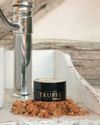
SILVERWARE—most take it for granted, some collect it and still others pack it away in cupboards and drawers, if only to minimise the cleaning. Since that ruckus with Charles I about exactly how divine he was, we Britons haven’t needed to melt down domestic silver to pay soldiers and are, therefore, blessed with an abundance. It would have been much more if our forebears hadn’t treated family silver as an inflation fighter—when prices got too high, they melted it down and, when prices were low and silver abundant, they stocked up on newly minted and fashioned pieces.
A quick rummage through that drawer may produce some surprises. If you don’t have such a drawer, a visit to an auction house is the answer—local, rather than online, as, despite the high-resolution images and in-depth descriptions, it’s really instructive to handle silverware before you buy.
What you are most likely to find is silver produced in the past 300 years. Any earlier and you have a treasure—possibly, if of high enough quality, even a national treasure.
How valuable the contents of your drawer are in trade terms depends on what it is, when it was made, who made it and its weight. It also depends on how well it was made and its rarity. How valuable it is to you depends on something a little less complex: do you enjoy it and can you either use or collect it?
Denne historien er fra November 29, 2023-utgaven av Country Life UK.
Start din 7-dagers gratis prøveperiode på Magzter GOLD for å få tilgang til tusenvis av utvalgte premiumhistorier og 9000+ magasiner og aviser.
Allerede abonnent ? Logg på
Denne historien er fra November 29, 2023-utgaven av Country Life UK.
Start din 7-dagers gratis prøveperiode på Magzter GOLD for å få tilgang til tusenvis av utvalgte premiumhistorier og 9000+ magasiner og aviser.
Allerede abonnent? Logg på

A leap in the dark
The primal play of light and shadow, whether in Leonardo's ever-so-subtle sfumato or Caravaggio's dramatic contrasts, has shaped Western art, as Michael Hall reveals

Beauty and the blimp
Inflammable airships may be gone, but a new hybrid aircraft, capable of delivering eco-friendly aviation, is set to take to the skies with a bang, finds Charles Harris

Three wishes for food and farming
Royal hedge planting, the terrible toll on Ukrainian farming and a maiden speech

Seeing the wood for the trees
Scotland's much-evolved forestry industry has become a focus for clever investors

Let's fall in love
Birds do it, bees do it, even educated fleas do it. Laura Parker finds that, when it comes to creatures mating for life, persistence, patience and a little dad dancing are key to success

Back from the dead
THREE Wentworth elm saplings have been planted in the grounds of the Palace of Holyroodhouse, Edinburgh, and on the Highgrove estate in Gloucestershire-29 years after what was thought to be the lastknown Wentworth elm died.

A man among men
What makes a master? Beloved of the commercial art world, handled warily by art historians, the word has long been opaque. Michael Prodger investigates its many meanings-and discovers that being male confers an unfair advantage

Unearth one of life's luxuries
Black diamonds are a girl's best friend this Valentine's Day, with Périgord truffle-based skincare from TRUFFE

Adventure awaits
Spend an unforgettable family holiday on the Benmore Estate and experience some of Scotland's finest wildlife and sporting activities

Let the art rule the head
Despite being a world leader in everything from jewellery to fashion and music, the UK is failing to nurture creativity at school and in regional centres. Tristram Hunt, director of the V&A Museum, calls for an urgent review